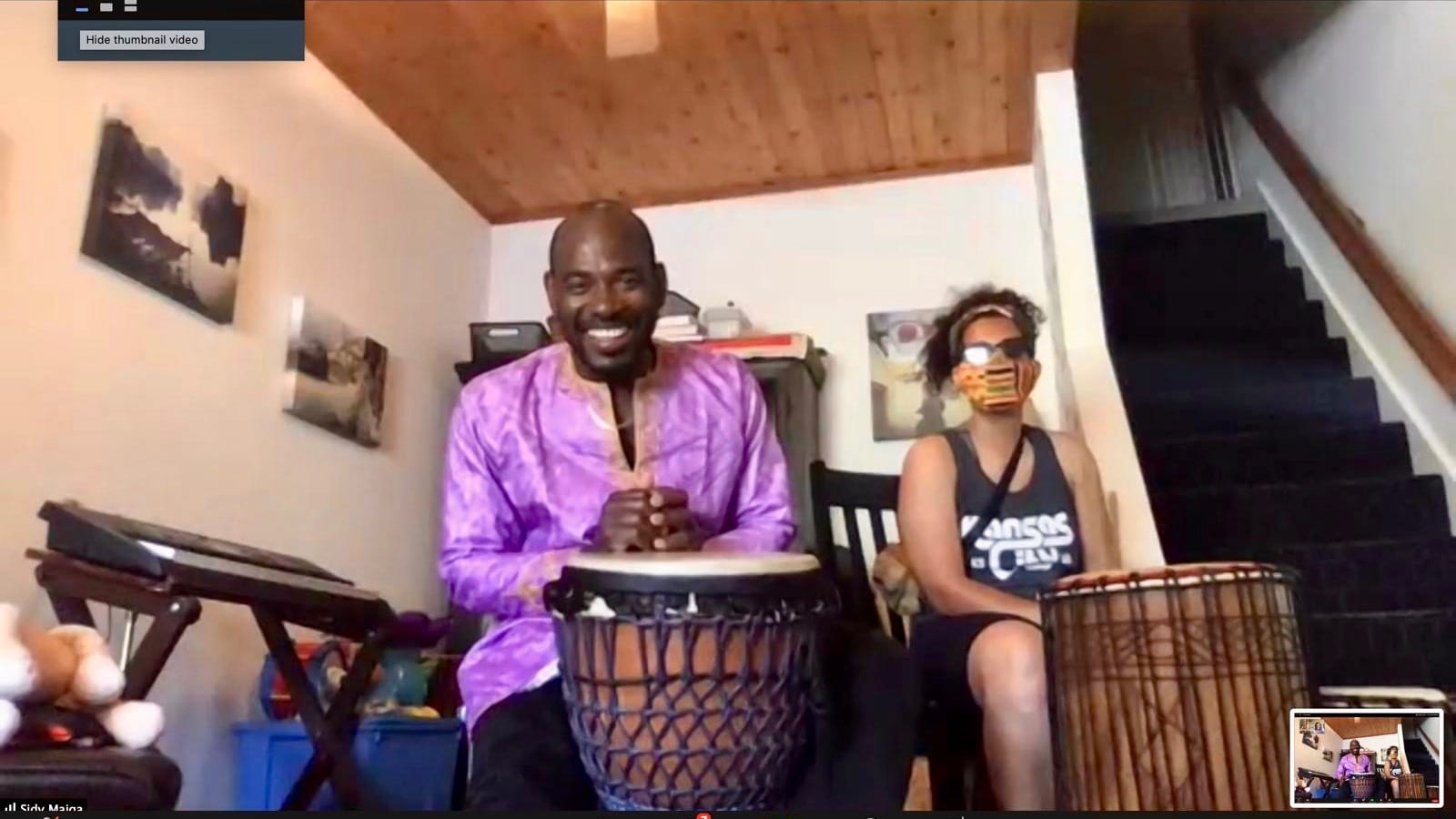Refugee Dream Center honors intersections between World Refugee Day and Juneteenth
“There are over 26 million refugees around the world,” said Bah. “People suffering because human beings made them suffer. How is that different from a police officer killing someone in broad daylight? Here in America, we see people of color, black men especially, facing violence and precarity like that which drives refugees from their homes.“ On Juneteenth, advocates, leaders, and
June 23, 2020, 11:00 am
By Clare Boyle
“There are over 26 million refugees around the world,” said Bah. “People suffering because human beings made them suffer. How is that different from a police officer killing someone in broad daylight? Here in America, we see people of color, black men especially, facing violence and precarity like that which drives refugees from their homes.“
On Juneteenth, advocates, leaders, and community members from the Refugee Dream Center (RDC) marched in rallies in downtown Providence. They joined the many groups calling to defund the police and invest in communities. Saturday, those same advocates and leaders sat down to their computers to a virtual World Refugee Day celebration held over Zoom.

“We are dedicating this World Refugee Day to the intersections between refugee and racial justice,” said Refugee Dream Center Director Omar Bah. “As refugees, we cannot overlook the importance of Juneteenth. Without Juneteenth, somebody like me, not to mention every other refugee, might not have been able to come to the United States,” Bah said.
Alongside their gratitude, Bah and other speakers voiced anger over racism and inequity in the United States and called attention to their entanglement with the ongoing global refugee crisis. “There are over 26 million refugees around the world,” said Bah. “People suffering because human beings made them suffer. How is that different from a police officer killing someone in broad daylight? Here in America, we see people of color, black men especially, facing violence and precarity like that which drives refugees from their homes.” Refugees resettled in the United States also face the consequences of its systemic racism.

The virtual celebration included a speech by Congressman David Cicilline, spoken word and drumming performances by Refugee Dream Center community members, and a keynote address by poet and refugee leader Fidel Nshombo. “I was born in the Congo, a refugee in Zimbabwe, an illegal immigrant in South Africa. I am an American citizen, and I am a black man. All my identities can be changed, modified to satisfy your liking,” Nshombo said. “Except my blackness.”
According to RDC case worker Isabel Kayembe, many refugees want to participate in protests but face barriers to doing so. Waiting for United States citizenship makes the potential for arrest much more daunting. Kayembe also said that witnessing and discussing police violence can be retraumatizing for refugees who thought they had left such scenes behind. “The United States was promised to us as a place of safety,” she said.

Bah finished by thanking RDC community members and allies for the ways they have come together to support one another during the coronavirus pandemic, which poses unique challenges to refugee communities. Despite closing physical services at the center, RDC staff and volunteers have continued to offer online English classes, made hundreds of calls each week connecting clients to health and employment resources, and delivered more than $40,000 of food and supplies to refugee families.
“We have a lot to be grateful for and a lot to stand for,” said Bah, and, as Syrian and Congolese music played on screen share, attendees danced the event to a close.
Those seeking support or offering donations can call the Refugee Dream Center at (401) 300-0544, or email [email protected].







